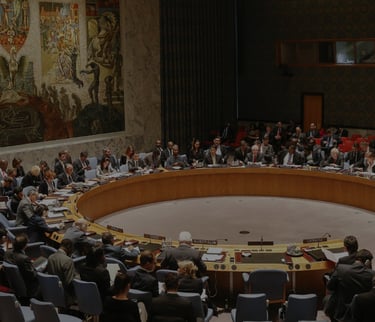
COMMITTEES
COMMITTEES
SwampMUN prides itself on having a diverse list of committees for high school delegates looking to improve their skills in Model United Nations. This year, all our committees will be General Assembly (GA) and separated by difficulty.
A common challenge at high school Model UN conferences is that new delegates are sometimes placed in higher demand committees while experienced delegates are placed in committees with low demand. In both cases, delegates can be left unsatisfied at the end of the conference. To reduce the chances of this happening at SwampMUN, we have grouped our committees by difficulty.
Several factors are taken into consideration when determining the difficulty of a committee such as the topics, competition level, and the mechanics:
Topic: Some issues are more accessible than others. For example, a broad subject like environmental sustainability is considered beginner-friendly, since most students already have some background knowledge. By contrast, topics that require specialized research, such as economic policies in specific regions, are more advanced.
Competition: The delegate pool matters. New delegates learn best when they are among peers with similar experience levels rather than being overshadowed by veterans. Balanced competition ensures that everyone has the chance to participate meaningfully.
Mechanics: While most committees follow standard parliamentary procedure, some include unique rules or structures. These "specialized" committees, which might introduce or remove certain mechanics, are generally more challenging and better suited to experienced delegates.
At SwampMUN, we are committed to making the conference an educational journey for all delegates, regardless of experience. By introducing Beginner, Intermediate, and Advanced categories, we aim to create a fair and supportive environment for all.

BEGINNER COMMITTEES
INTERMEDIATE COMMITTEES
Beginner committees are designed for delegates who have little to no prior MUN experience. These committees spend more time covering the fundamentals of procedure, especially during the first half of the weekend. Directors are trained to answer questions and provide guidance, helping delegates understand how to participate effectively. Beginner committees typically focus on topics and structures typically seen in the high school and collegiate circuits.
Intermediate committees are meant for delegates who have attended a few conferences and want to continue improving while still receiving constructive feedback in a less competitive setting. These committees will still have training sessions but transition into a standard conference format about halfway through the first day. They often introduce delegates to non-traditional or specialized assemblies, such as regional bodies like the European Union. While these formats may not be as common as the UNSC or UNESCO, they can be found in most conferences.










